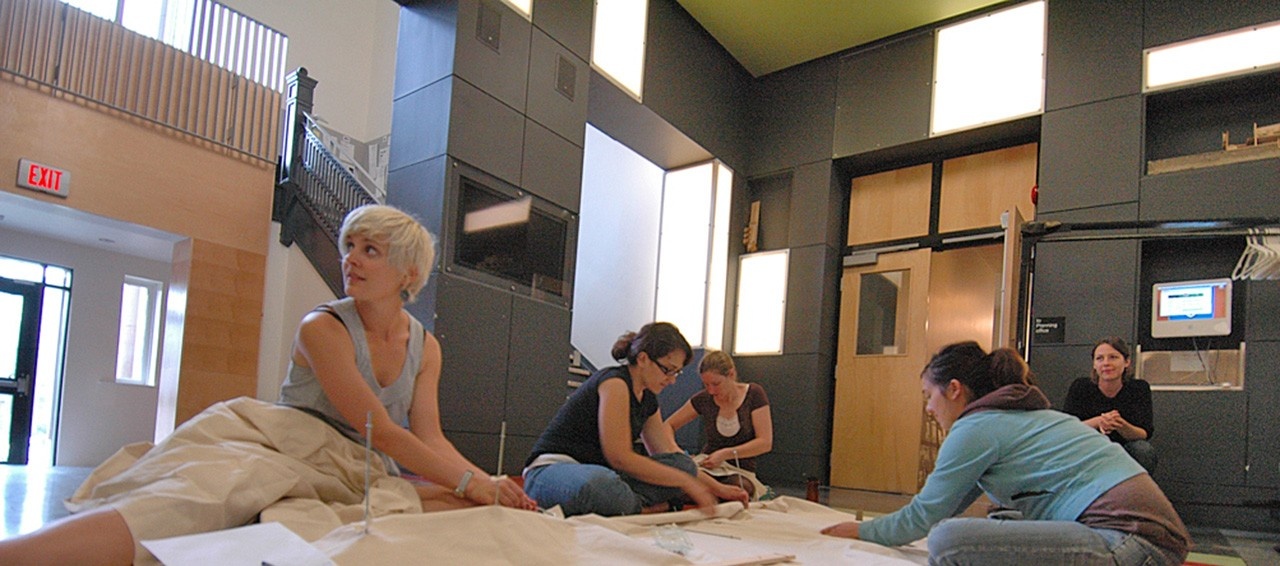Financial Tips
The university's Money Matters web pages include current (2022) information on the cost of living in Halifax.
Student Survey
Back in 2017, fifty-eight BEDS students assembled financial information and tips for the benefit of incoming students. Here is a summary.
Stats
- 14% of students live at home; 5% live in a student residence; and 81% live in an apartment or house off-campus.
- The average monthly cost of off-campus accommodation (including rent, heat, water, and electricity) is $827 for a bachelor apartment, $735 for a one-bedroom, $633 for a share of a two-bedroom, or $657 for a share of a three-bedroom. [Note: In 2022, the low vacancy rate in Halifax has led to higher rents, so multiply these amounts by 2.]
- 43% of students applied for external scholarships outside the university.
- 60% of students have a student loan. Of those students, 74% found that the loan amount was not sufficient to cover all of their expenses.
- 26% of students have a part-time job during the term, working an average of 8 hours per week.
- 52% of students purchased a new computer when they started the BEDS program. The average cost was $2,000, with a range from $500 to $4,500.
- The equipment package at the start of the BEDS program costs $500.
- The average cost of supplies each term is $534. This includes books, drawing supplies, modeling supplies, software, and printing.
- Of the B5 students, 47% reported that their B4 work term salary was greater than their work term expenses; 22% said that it was equal to their expenses; and 31% said that it was less than their expenses.
Tips
Individual students also offered financial tips on accommodation, equipment, materials, food, savings, and student loans:
- Pay the extra money to live closer to campus. If that's not feasible, share an apartment with other students to keep rent costs down. After working late in the studio, a long commute home wouldn't be welcome.
- Try to minimize the cost of rent, but ensure you are in a stable living situation.
- Drafting equipment and computer programs are expensive. Budget accordingly.
- Although Mac computers are more user-friendly, PC computers are less expensive and support all of the design-related programs you'll need. You don't need a high-end computer; something in the middle is fine. You can do high-end graphic work on the Faculty's computers.
- Expect to pay $30 per month for an Adobe Creative Cloud subscription (Illustrator, Photoshop, InDesign, etc.).
- When making physical models, you can minimize purchases of new materials by reusing off-cuts and leftovers from the salvage depot in the studio and the scrap bins by the wood shop.
- Keep your receipts in case you want to return something.
- The biggest extra expense is eating out. Bring food from home instead.
- Eat healthy. This program is demanding and requires high nutrition.
- Save enough money before starting the BEDS program, so you don't have to worry about money on a daily basis.
- To replenish your savings after the BEDS program, you can take a break between BEDS and MArch, or extend your MArch work term for an extra year.
- Apply for external grants, bursaries, and scholarships. It doesn't take long and can pay tenfold for the time you put in.
- Don't wait to apply for a student loan. Sometimes there are delays.
- Having a part-time job during the academic terms is difficult but possible. Still, you won't have much time to make money. Saving before starting BEDS is a better option.
Budgeting for the First Calendar Year
| B1 (Fall) | B2 (Winter) | B3 (Summer) | ||
| School | Tuition fees (2022-23; Canadian students) | $4,788 | $4,788 | $4,788 |
| " | Incidental fees (2022-23) | $1,200 | $548 | $576 |
| " | Drafting equipment (if needed) | $500 | ||
| " | Computer (if needed) | $2,000 | ||
| " | Books, supplies, printing | $550 | $550 | $550 |
| Home | Accommodation (off-campus) | $6,000 | $6,000 | $6,000 |
| " | Food | $1,200 | $1,200 | $1,200 |
| " | Phone, internet, etc. |
$600 | $600 | $600 |
| " | Travel to and from Halifax | |||
| " | Miscellaneous | |||
| TOTAL |
